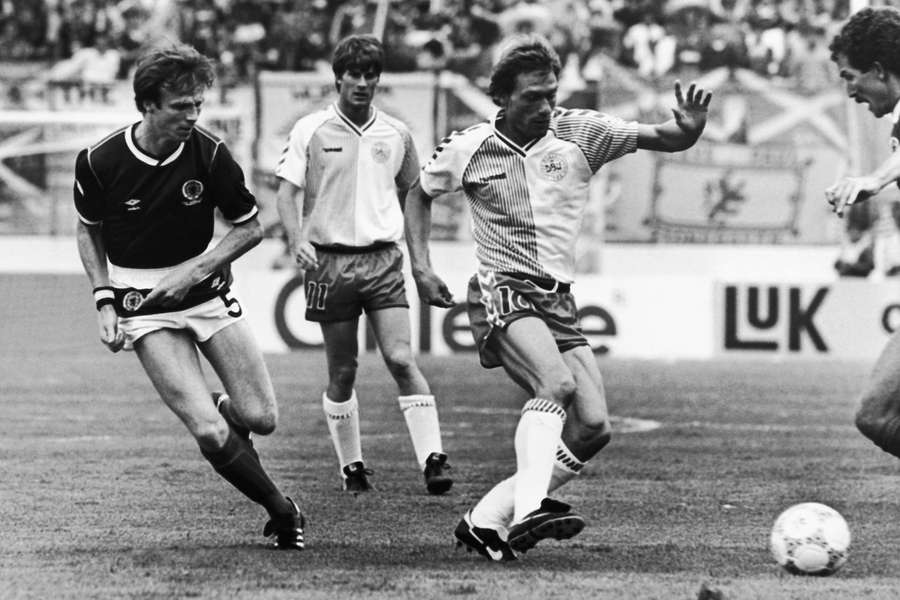The Danish side from back then have gone into history as one of the best sides never to win the World Cup.
Back then, 21-year-old Michael Laudrup was one of the biggest up-and-coming talents in Europe. Up front, the Danes had Preben Elkjaer Larsen, a lightning-quick powerhouse with a deadly eye for sniffing out chances. Frank Arnesen and Soren Lerby were clever and creative orchestrators in the midfield engine room. And at the back, 36-year-old Morten Olsen starred in a "Franz Beckenbauer type position" in an old-school sweeper role.
The draw put Denmark in the toughest World Cup group, with Scotland, Uruguay, and West Germany. But after reaching the semifinals of the European Championships in 1984, beating England 1-0 at Wembley to reach that tournament and putting four goals past Rinat Dasaev and the mighty Soviets in a 4-2 thriller in Copenhagen in the World Cup qualifying campaign, nothing could faze Sepp Pionteks's chosen men.
As the song of the Danish supporters went: they were red, they were white, they were Danish Dynamite.
Most football experts called them "Europe's answer to Brazil", as the only side to have been widely compared to the Dutch team of the 70s, as they relied on spatial awareness, imagination of passing, and ceaseless movement in a futuristic version of Ernst Happel's Holland.
That led football experts across the globe to label them as favorites to win the World Cup. A miracle for a tiny country with a population of just five million which had never made a name for itself or previously produced a team that could even dream of posing a threat against some of Europe's biggest football nations. Danish football did not even turn professional until 1978, and before then, Denmark had mainly prided themselves on the export of bacon, beer, and butter.
The game against Scotland was believed to be the easiest one for the Danes in the group. But Denmark struggled to create clear-cut scoring opportunities in the first half against a well-organized Scottish outfit that did not allow Elkjaer and Laudrup many chances to shine.
Graeme Souness seemed out of sorts in midfield while the Danes enforced their stronghold on the game in the second half, which paid off after 57 minutes. Preben Elkjaer ran at Willie Miller and, after a fortunate bounce, fired clinically past a helpless Jim Leighton. This put the pressure on the Scots, and Frank McAvennie came on in the 61st minute to try and get an equaliser.
Charlie Nicholas was forced to leave the pitch towards the end after a strong Danish tackle, and as the Scots had already used their two substitutes, they finished the game with ten men. Denmark held on for a fortunate 1-0 win, but coach Alex Ferguson stated after the game that he was pleased with the performance after holding their own against the favored Danes for long periods.
The rest is history. After a 6-1 humbling of the ill-disciplined Uruguayans and a 2-0 success over West Germany, Denmark qualified for the knockout stages of the tournament, where they, just like in the semi-final of the 1984 European Championships, crashed out against Spain again after Jesper Olsen's dreadful back pass that allowed Spain back into the game when Emilio Butragueno equalized.
But the game against Scotland and the 1986 World Cup live long in the memory of those Danes who watched it unfold.

